“Statements such as ‘I follow Christ, not creeds’ smack of Christian mysticism. Anyone who downplays the role of theology in the church or who speaks of going ‘beyond doctrine’ is following the path of the mystic. Such a person will usually gravitate toward practices such as contemplative prayer or walking through labyrinths. He or she may also begin to fixate on the work of the Holy Spirit to the exclusion of other areas of biblical instruction.” Got Questions
Both George Whitefield and Jonathan Edwards purported to be countering cold, dead orthodoxy. Both spoke of a “second experience” in their Christian lives. John Wesley’s message was no different. I covered some of the contradictions in both Whitefield and Edward’s lives which led me to seriously question the authenticity of both men. Of course, I can’t speak to their intent, as only God knows men’s hearts, but Jesus did tell us that we would know men by their “fruit” (Matt 7:16) and Paul instructed us to “test the spirits whether they be of God.” (1 John 4:1).
As I read through the writings of these men and those who either hold them on a pedestal or are critical of them, I’m ever aware of the “tolerant” spirit of our age. I sure didn’t set out to be a critical “discernment ministry.” But as unpopular as it may be, we have a much greater need of discernment today than we do of a deeper understanding of the sick practices of Luciferians or the countless ways they are trying to kill us.
Influence of the Mystery Schools
The two forms which the Mystery Schools take are Intellectual (ie. Universities as I covered previously) and Mystical. These have controlled religion, culture and public thought throughout history by addressing the carnal aspects of mankind; intellect and emotion/soul.
John Wesley was heavily influenced by Medieval Mysticism. He translated books of the mystics, and infused Methodism (roughly speaking, his methodical practice of recording everything) with his Mysticism. So, in considering our first Armenianist, John Wesley, I’ll be starting with a look at Christian Mysticism.
Christian Mysticism – Greek “Theoria” refers to looking at, contemplation, speculation
“Both contemplation and mysticism speak of the EYE OF LOVE which is looking at, gazing at, aware of divine realities – William Johnson – Wikipedia
Within mystical Christianity, the Jewish Mystical Shekinah became “Gnosis” as we see in the teachings of Augustine of Hippo and Origen. Among Christian Mystics, we find Montanus (originally a priest of the Oriental ecstatic cult of Cybele, a fertility goddess), Tertullian (who followed Montanus), Thomas Kempis (highly influential in the lives of Whitefield, Edwards and Wesley), and St. Thomas Aquinas (the levitating Catholic priest).
It’s hard to keep all the names and dates straight, but rather than going out and buying a book on Christian Mysticism (there are many), here’s a quick outline of some of the First Christian Mystics / Gnostics included:
- Augustine of Hippo & Origen: Neoplatonism (Oneism)
- Montanus (Roughly 101-200AD) (Montanism)
- Formerly a priest of the Fertility Goddess Cybele
- Leader of “Illuminati” (Illuminated)
- In 172 or 173AD Montanus entered into an ecstatic state and began prophesying in the region of Phrygia (now in central Turkey).
- Members of his sect went into a frenzied state, had seizures, uttered strange languages that followers regarded as the “Holy Spirit.” 🤔
- Spoke of “New Prophecy,” Imminence of the End of Days, Jerusalem descending etc.
- Was rejected by the Early Church
- Tertullian rejected orthodoxy and converted to Montanism in 207AD
- Later embraced the Neoplatonism (Oneism) taught by Augustine of Hippo & Origen
- Thomas Kempis (1380-1471) Most well known for his Book, The Imitation of Christ:
We see significant links to Judaism in Christian Mysticism, which, among other things;
- Placed women in prominent positions
- Represented a Mishnaic (oral law) influence in Food Restrictions
- Espoused Millenarianism
Mysticism in the church
In his article “Thomas A. Kempis and Medieval Mysticism” (Reformed) Rev H.C. Hanko explains the problem of mysticism in the church.
“We can find, I think, an explanation for mysticism and its constant attractiveness… Mysticism arises when the church does not preach the full gospel of Jesus Christ, or at least does not live fully the gospel which she preaches…
Man is created by God as a creature with a soul. The soul includes mind and will. And the will, in turn, includes the powers of choice and the powers of emotions. God has determined that fellowship with Him through Jesus Christ includes the whole man in body and soul, in mind and will.” H.C. Hanko
Spirituality in the New Testament
Hanko does an excellent job presenting the error of mysticism, but for a more accurate and complete understanding of the whole (regenerate) man; the believer’s new nature and identity in Christ, I turn to David Needham’s critical work, “Birthright, Christian Do You Know Who You Are?”
“But there is one serious error – a tragic flaw. An error that pervades dozens of popular books on the Christian life. I wish I could shout these next lines around the world! A Christian is not simply a person who gets forgiveness, who gets to go to heaven, who gets the Holy Spirit, who gets a new nature. Mark this – a Christian is a person who has become someone he was not before. A Christian, in terms of his deepest identity, is a SAINT, a born child of God, a divine masterpiece, a child of light, a citizen of heaven. Not only positionally (True in the mind of God but not true in actuality here on earth), not only judicially (a matter of God’s moral bookkeeping), but ACTUALLY.” David Needham, Birthright: Christian Do You Know Who You Are (p. 47)
Rather than dividing men into intellect and emotion/soul, the New Testament describes those born of God through faith in Jesus Christ as “flesh and spirit.” This is an important distinction, since, in the Bible, “flesh” encompasses the intellect, the emotion and soul (carnal spirituality ). But those who, through Christ, are born in spirit have the added element of LIFE IN THE SPIRIT. When a person is born again, this replaces the soulish aspect of the flesh as MAN’S TRUE INNER BEING (Romans 7:22). It is through this new spiritual life and the Holy Spirit that we commune with God. (John 3:6-7) If you want to get good and confused try googling “man body soul spirit” for a graphic representing this. 😵 No, seriously, don’t do that, you will get confused. Just read on.
See, because the god of this world lives within the confines of the creation, Mystery School thought views and addresses man only in his fallen, carnal state. The enemy’s areas of influence are limited to intellect, emotion and soulish/carnal spirituality which originates in the unseen “heaven” within this created realm. This is known in the Bible as the realm of the deceptive “spiritual hosts of wickedness in heavenly places (ie. demons.)” (Eph 6:12) *Sorry John MacArthur, the “second heaven” is not imaginary “outer space.”
These two errors create a dialectic which the enemy uses to polarize and divide believers and introduce false doctrines. This is why Paul urged believers to be grounded in the Word of God, to “take captive every thought to make it obedient to Christ.” (2 Cor 10:5)
On one side of the false gospel dialectic we have the Christian intellectualism/orthodoxy which the Roman Catholic Church was/is known for. But at the same time, the Roman Church allowed mystics and “miracles” which supplied the missing element of spiritual experience that their cold orthodoxy lacked. Rather than correcting this error, Reformed Revivalists dealt with the missing emotional/spiritual element of cold orthodoxy by teaching that there was a “second experience.” That experience was not the Holy Spirit. It was/is mysticism…
(I want to re-acknowledge here that Jonathan Edwards did skillfully write about the distinction between genuine Holy Spirit and occult mystical experience. But he allowed the latter at his meetings, even praising his mystic wife whose experiences, even by Edwards own definition, were not scriptural. Wesley records these distinctions as well. I’ll go into that a bit later).
…This, less than a hundred years after the severe persecution of the Albigenses in Europe and the burning alive of the Rev. Adrian Chalinski, the the learned Almericus and six of his disciples. (Fox’s Book of Martyrs p.23). This, after hundreds of years of believers suffering incomprehensibly barbaric persecution for crimes as simple as being associated with someone who possessed a copy of scripture “in the vulgar tongue.” Depending on which statistics you’re citing, there were roughly 50,000,000(!) believers martyred by the Roman Catholic Church, most for the crime of reading the scripture in their own language. I think it’s safe to say that none of them were caught up in dead orthodoxy or looking for a “second experience.”
Seeing how it was clearly genuine Holy Spirit power that gave the millions of saints – martyred for translating and reading the Holy Scriptures in their own language – strength to face the flames, I strongly suspect that this error was deliberately sown into the Reformation.
I personally wrestled with the intellectual/mystical dialectic for many years. Originally finding faith in Christ in a Baptist Church, I was, for the most part, offered sound doctrinal teaching (one exception being dispensationalist/ futurist eschatology). But I sensed something lacking. The church I attended believed that the gifts had ceased (cessationism – a Calvinist doctrine taught to correct Christian Mysticism). But their argument didn’t make sense to me, being based largely on only one verse (1 Cor 13:10). In the following years I remained predominantly in the Baptist church, but visited charismatic churches looking for the experience the New Testament describes and history records; ie. believers being so filled with joy through the Holy Spirit that they went to their executions singing. But I never felt like what I saw there was the same thing. Today I know that what I encountered there was mysticism.
With that context, notice how this definition of mysticism by R.G. Tuttle, quoted in Hanko’s article, only addresses man in the carnal terms of intellect and soul:
“Perhaps as good a definition as any could begin with the statement that mysticism is anything that gets one in touch with reality beyond the physical senses. Furthermore mysticism embraces a “right brain” awareness of God and all mystics stress (more or less) the essential unity of God, nature, and humankind; therefore, union with God can be achieved (more or less) through the mystical contemplation of the unity. More specifically, mysticism is in essence that “deep sense of union with God in the inmost depths of the soul,” an immediate awareness of a unique relationship with God. It is religion in its most acute, intense and living state.” (Robert G Tuttle – Mysticism in the Wesleyan Tradition)
The same author later describes mysticism in ways that we might describe Holy-Spirit-given experiences. We can see how easy it is to mistake the counterfeit for the genuine;
“Several characteristics have been listed as common to all mystical experience. First of all, mysticism defies expression, and its ineffable character makes it virtually impossible for mystics to describe their experiences adequately. Another characteristic of mysticism lies in its “noetic quality.” To understand mysticism, one must experience mysticism. Its thoroughly esoteric nature plunges the soul into depths of truth unplumbed by the discursive intellect. The mystical experience is also transitory because the mystical heights cannot be sustained for long, but this is not to imply that no growth has taken place. Ideally, after each experience the mystic returns to a level of devotion even higher than before. In fact, these “mystical heights” are nonessential to mysticism and can be justified only if the mystic returns to the senses with a higher level of devotion.” (ibid)
Hanko;
“Mysticism, in many cases began to emphasize dreams, visions, and other forms of revelation which one would receive directly from God apart from the scriptures. When the Zwickau Prophets boasted of the revelations they had received from the Holy Spirit, Martin Luther responded, “I hit your holy spirit on the snout.” Luther’s point was that the Holy Spirit speaks only through the objective scriptures…” H.C. Hanko
At first glance, Luther’s statement (reflecting ‘sola scriptura’) might be viewed as purely intellectual, but Luther is correct in that the New Testament teaches us that genuine Holy Spirit given experiences must be tested against the Word of God. Hanko goes on to make a very important point;
“Some have said that in the quest for union with God and absorption into the divine being, the mystic bypasses Christ. There is an element of truth in this, although it is not true of all mystics. However, when one reads the mystics one cannot help but think that the union with God which the mystic holds up as the ideal religion is such complete absorption into the divine essence that Christ is no longer the only way to the Father. One goes directly to God and hurls himself into the brilliantly shining ocean of the divine being without coming to Christ.” (Hanko)
Now, let’s turn to Needham again as he explains the TRUE experiential nature of the Christian’s new life. (You can imagine my joy in discovering this)!
“I do not believe the New Testament gives us any justification for the idea that the new believers knew they had received the Holy Spirit simply because someone informed them of the fact. As if they wouldn’t have known it unless someone had come along and told them. No! Such a view hardly parallels such statements as these:
‘Did you receive the Spirit by observing the law, or by believing what you heard?’ (Galatians 3:2)
‘Did you receive the Holy Spirit when you believed?’ (Acts 19:2)
‘And if anyone does not have the Spirit of Christ, he does not belong to Christ.’ (Romans 8:9)
‘And this is how we know he lives in us: We know it by the Spirit he gave us.’ ( 1 John 3:24; cf. 1 John 4:13)
Not to mention the experiential emphasis of Acts 11:15-17 or Acts 15:8. Of course it was an experienced thing! They knew a radical event had taken place! In that miraculous event of receiving the Spirit, new covenant life poured into their deepest beings. They had been “born of the Spirit.” Out of their innermost being “Streams of living water” were flowing.
Jesus was Lord! They understood God’s truth as they had never understood it before. There was joy and spiritual power. They loved and cared for one another as they never had loved and cared before. They witnessed with conviction and boldness. And in many cases, there were very special manifestations of the fact that the spiritual flow between themselves and God was open and active: they spoke in tongues and prophesied.
Listen again – really listen – to the words of our Lord Jesus:
‘If a man is thirsty, let him come to me and drink. Whoever believes in me, as the Scripture has said, streams of living water will flow from within him (“from his innermost being” NASB). By this he meant the Spirit, whom those who believed in him were later to receive.’ (John 7:37-38)”
- is not Veiled.
- is not Secretive.
- is not Elitist.
- is a Response to God – It does not Originate within Us.
- is not subjective feelings & impressions outside of or in addition to God’s Word (2 Pet 1:3-8).
Satan is the great counterfeiter. Mysticism is his sorry counterfeit of true Christian joyful experience of a born-again-in-spirit life.
to be continued…
Revivals Pt1 – Asbury: Let’s Talk About Revivals
Revivals Pt 2 – Enlightenment in the Land of the Plumed Serpent
Revivals Pt3 – Mystery Schools, The RCC and the Reformation
Revivals Pt4 – The First Great Awakening & The Enigmatic George Whitefield
Revivals Pt5 – The Brimstone and Mysticism of Jonathan Edwards
Revivals Pt 6 – John Wesley (1 of 2) – The Mystery School Dialectic and Christian Mysticism
Revivals Pt 7 – John Wesley (2 of 2) More Mystics & Papal Doctrines of Men
Revivals Pt8 – From Wesley to Finney By Way of Count Zinzendorf
Revivals Pt9 – Charles Grandison Finney, Freemasonic Moralism and Modern Evangelicalism
Revivals Pt10 – The Pagan “Virus“
Revivals Pt11 – The Third Great Awakening: Pentecostalism!
Revivals Pt12 – Pentecostalism Pt2: The Founders of Pentecostalism
Revivals Pt 13 – Social Justice Pt 1 – They Don’t Mix
Revivals Pt 14 – Social Justice Pt 2 – A City Upon A Hill


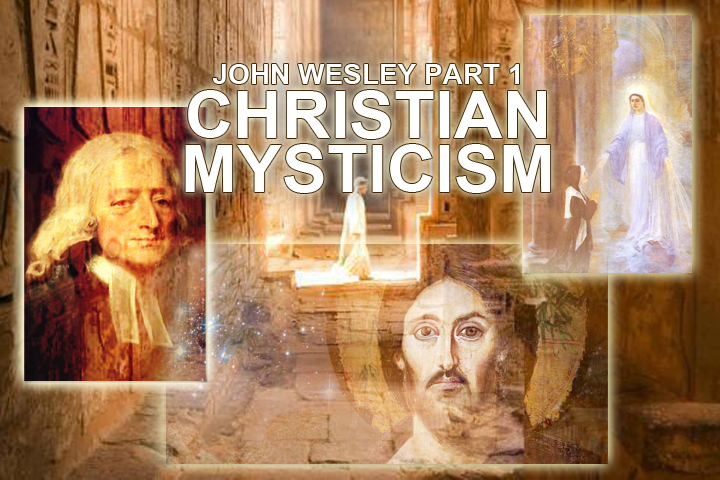
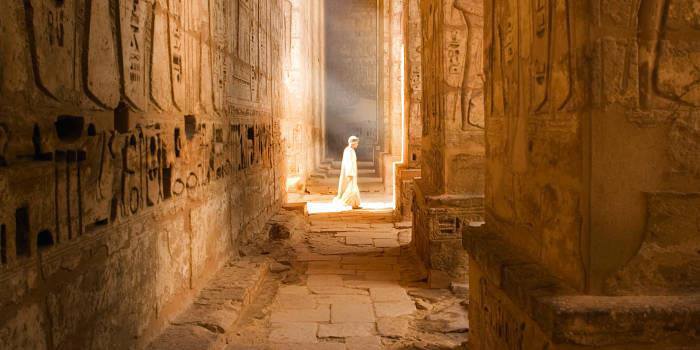
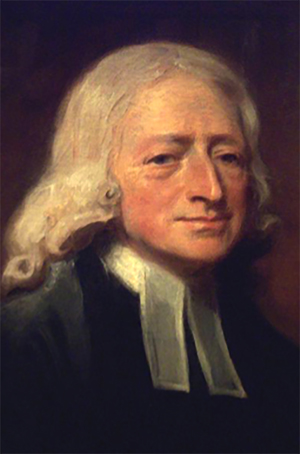
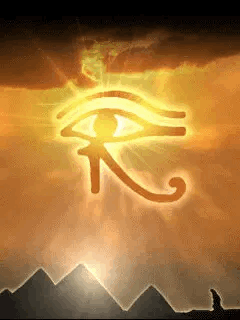

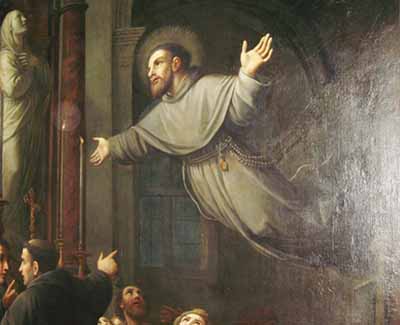



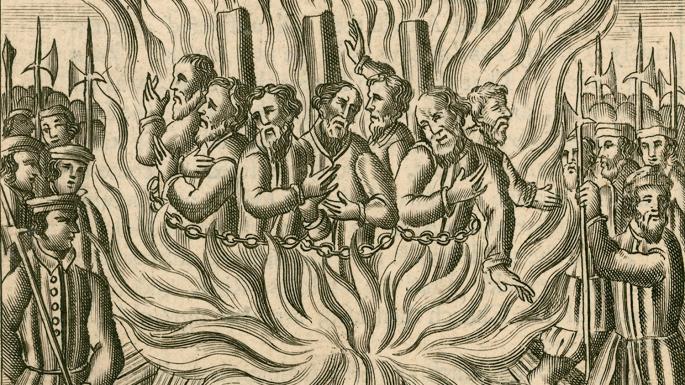
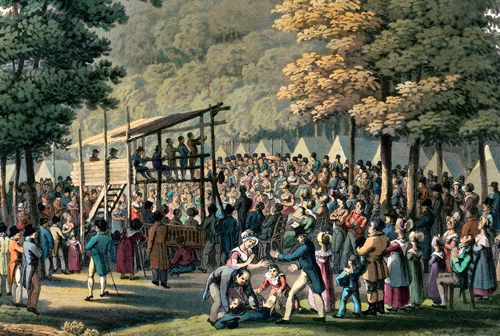
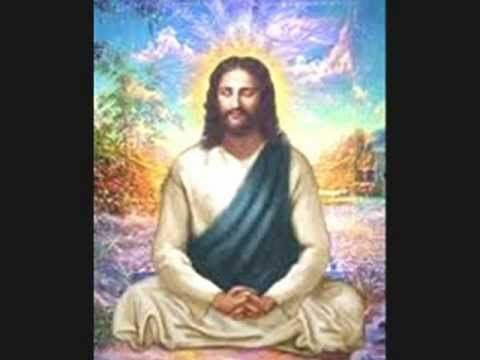
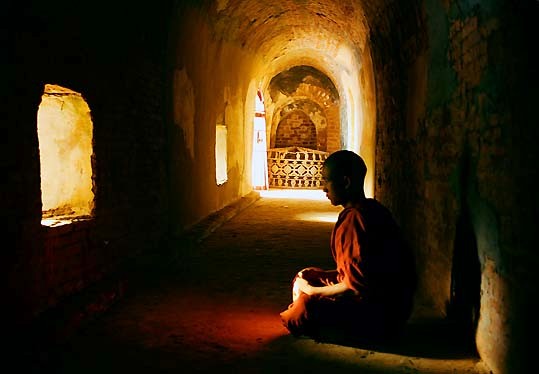



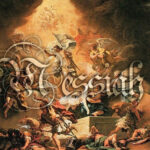
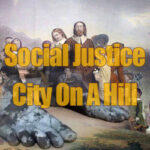
![STARS, WARS, BLOOD & LUST… [The “royal secrets” of the Djedi knights of Scientism]](https://christianobserver.net/wp-content/uploads/2023/11/star-wars-blood-lust-150x150.jpg)

